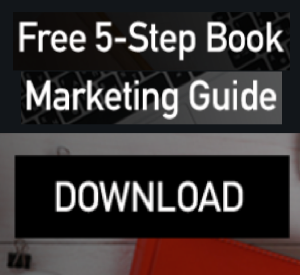In early June, paranormal romance author Lisa Kessler announced that instead of receiving money from Amazon for her book sales, she in fact owed them money. It turns out that readers had discovered a hack to read books for free—and it was not just frustrating authors but penalizing them, too.
“Just a reminder that Amazon is NOT a library,” Kessler tweeted. “When you read and return a book it COSTS the author . . . It’s June 1st and I owe Amazon at the moment because people are reading through the Muse series and returning the books when they finish . . . :-/ Authors need to eat too . . . :-(”
Kessler wasn’t the only author who was affected. According to rumors, readers on TikTok were sharing their favorite reading hack—a loophole in Amazon’s ebook return policy stipulating that readers can return any ebook purchase before seven days.
“Books you purchase from the Kindle Store are eligible for return and refund if we receive your request within seven days of the date of purchase,” states the policy. “Once a refund is issued, you’ll no longer have access to the book.”
The policy was meant to help customers get their money back if they accidentally bought an ebook, buying them a little time in case they didn’t catch the mistake. Instead, some opportunistic readers saw a means of exploiting the policy in order to read books for free. Essentially they would have seven days to read the book and then return it with no issues for anyone—except the authors. And that has authors like Kessler seeing red. So Kessler, along with other authors, decided to start making some noise.
One of the biggest issues for authors, especially Kessler, is that the policy only applies to ebooks. This same policy is not extended to music or video, an exception that frustrates the authors trying to make a living from their books.
“You can dislike a movie and you still can’t get your money back for the ticket or the fee to buy or rent when you’re streaming,” Kessler tweeted two days after her initial post. “The same should be true for ebooks.”
The reality is that many authors are not wealthy. They depend on their book sales for the costs of living, such as paying rent, buying food, and covering bills. What the readers exploiting this policy don’t realize is that when an author can’t support themselves through their writing, they often have to find other work, which means less time devoted to writing books.
Science fiction and fantasy author Nicole Givens Kurtz agrees. “If people continue to promote [reading and returning ebooks], it impacts my income, which impacts my quality of life and my ability to take care of my family,” she told NPR in Authors are protesting Amazon’s e-book policy that allows users to read and return. “I don’t think readers quite understand or see the person behind the product.”
And that’s not the only problem. According to NPR’s Deanna Schwartz, Amazon is the only major online retailer in the United States with such a lax return policy for ebooks.
“Out of the five largest e-book retailers, Amazon is the only one that allows customers to easily return e-books within a seven-day window,” Schwartz writes. “Some other retailers have a flexible return policy, but require extra steps—Koboand Apple iBooks both require contacting customer service to see if an item is eligible for a refund. Barnes & Noble and Smashwords do not allow any e-books to be returned.”
Authors are growing increasingly frustrated with the policy. Not only is there a Change.org petition that’s just shy of 75,000 signatures, but Kessler’s stand has drawn international attention, especially in book publishing circles.
So far, Amazon has remained tight-lipped about any chances of changing the policy, with a spokesperson telling NPR, “We have policies and mechanisms in place to prevent our e-books returns policy from being abused. We’re always listening to feedback and we investigate any concerns we receive.”
So what can authors do in the meantime? For one, be aware of the situation. “Forewarned is forearmed,” as the saying goes. Anticipating the possibility will hopefully prevent a bit of the shock.
Authors might also want to investigate using Kindle Unlimited for their books, which eliminates the potential for surprise returns. It pays authors by pages read, and there’s no return policy. Authors can also ensure their books are on most major platforms and link their books to sites other than Amazon.
Finally, it’s worth asking your readers for their support. As Kessler pointed out, some readers are simply not aware of how these actions can affect authors, not only in terms of noticeable money but in the ability to earn a living from their books. And while this is definitely a case of some gross behavior, many readers are fierce about supporting the authors and books that they love, even in the face of steep discounts and offers.
“Authors love readers. They’re our lifeblood,” horror and fantasy author Chad Ryan told NPR. “My hope is that readers will understand that influencers on TikTok and discussions on Facebook may have all the angles figured out on how to get e-books from Amazon for free, but it’s not Amazon they’re hurting here.”
Hannah Guy lives in Toronto and is a professional writer and copywriter who specializes in books, books, and more books. Follow her on Twitter at @hannorg.





